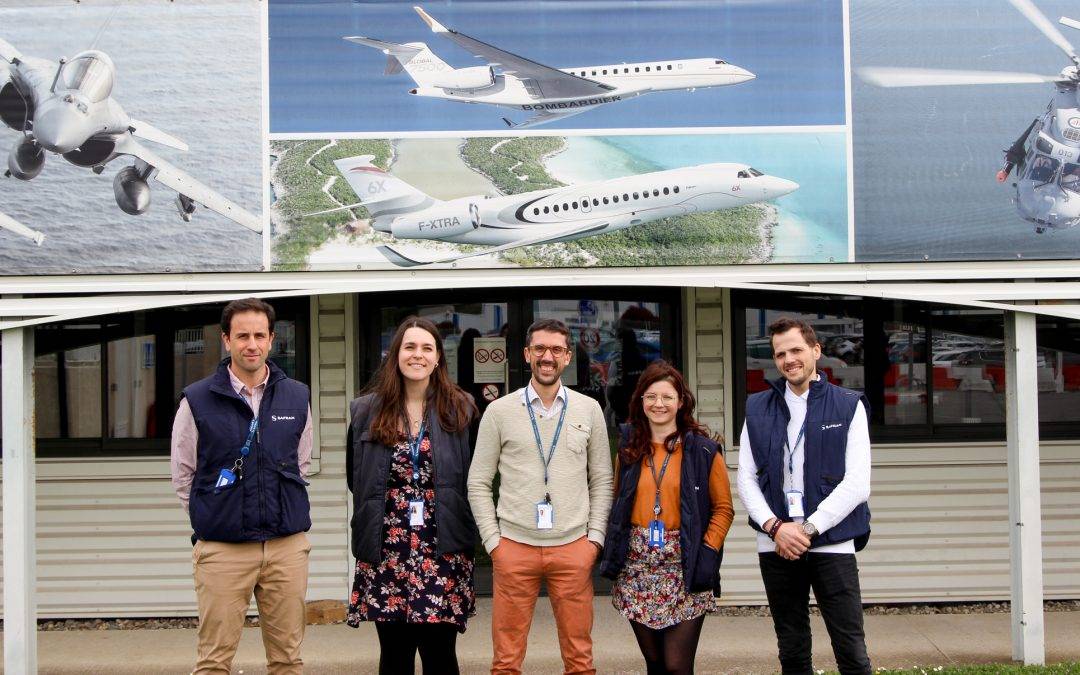
May 15, 2024
Partner presentation 🤝

Safran Power Units is Safran Group Fuel Cell center of excellence: it aims to mature this very promising technology for the decarbonization of aviation.
Safran PU is specialised in the design and manufacturing of Auxiliary Power Units (APUs), starting systems for civil and military aircraft, as well as turbojet engines for missiles and target drones. It also innovates and develops new solutions for power generation that are ever more efficient, cleaner and more economical, by relying on hybridization and fuel cell technology.
Safran Power Units is the Project Coordinator of the NIMPHEA project. As such, Safran Power Unit will be in charge of the technical, financial and administrative coordination of the project. Safran PU will also lead and monitor the dissemination and communication activities and will ensure the long-term exploitation of project results.
From a technical point of view, Safran Power Unit will focus on the new MEA specification, and will guide MEA manufacturing actors to reach and aeronautical quality level of manufacturing process and the management of safety topics related to the development of a new technology of fuel cell stack core component.
Safran PU will also lead the TRL evaluation of this new MEA . Safran PU will be part of the validation phase using a full size MEA and Safran PU bipolar plates.
“The High temperature PEMFCs technology would present all the advantages to tackle the integration, performance, reliability and climate neutrality challenges that aviation field requires.
By being part of the NIMPHEA consortium and managing it, Safran Power Units will contribute to raise the maturity of this technology by studying one of its core component“.
Yan Duranteau, NIMPHEA Project coordinator / Project leader in R&T department
Meet the team:

Yan Duranteau, NIMPHEA Project coordinator / Project leader in R&T department
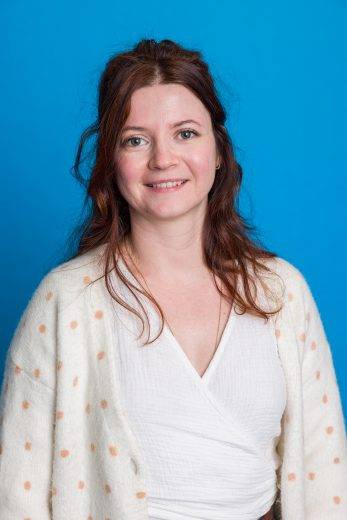
Marion Scohy, Company expert in Electrochemistry / Fuel cell stack

Julien Esteban, Company expert in Materials Engineering

Sarah Zorninger, Industrial Pilot in R&T department

Patrick Raynal, Industrial manager in R&T department

Maxime Beauvais, Reliability and Safety Engineer

Yan Duranteau and Marion Scohy, leads in project management and technical coordination
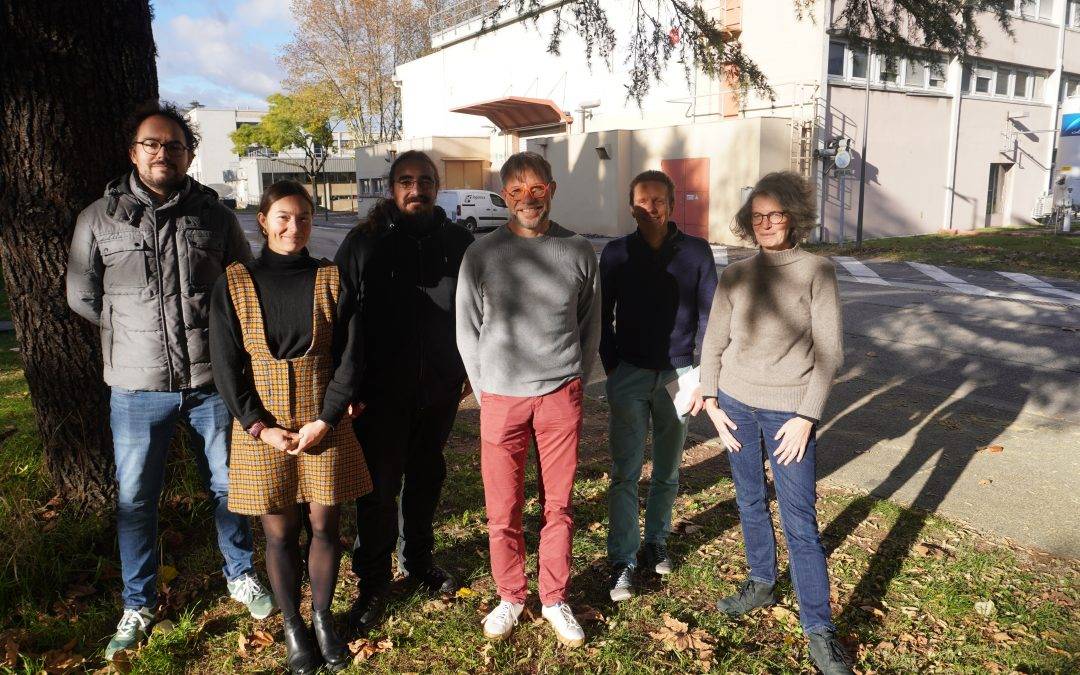
Mar 6, 2024
Partner presentation 🤝

CEA-Liten is a major European research institute and a driving force behind the development of the sustainable energy technologies of the future. The institute is spearheading the EU’s efforts to limit dependency on fossil fuels and reduce greenhouse gas emissions in three key areas: renewable energy, energy efficiency/storage and development of materials.
CEA-Liten is involved in several aspects of the NIMPHEA project and will support the development of high-temperature MEAs by improving their description and understanding. In particular, CEA-Liten is involved in the development of electrodes and will carry out nanostructural characterisation of materials and components, focusing on the catalyst/electrolyte interface.
In addition, CEA-Liten will carry out electrochemical characterisations which will be analysed using the PEMFC HT MEA models developed in the project in order to quantify the most limiting phenomena. Once calibrated, the models will also be used to improve the design of the stack’s bipolar plate.
“This project is a real opportunity for CEA to strengthen and extend its expertise in the field of high-temperature PEMFCs to meet the challenges of aviation’s demanding requirements while contributing to its decarbonisation.”
Arnaud Morin, Senior scientist, Physical chemistry and Electrochemistry
Meet the team:

Arnaud Morin: Senior scientist, Physical chemistry and electrochemistry

Pascal Schott: Modelling and simulation researcher for electrochemical systems

Wassim Fatnassi: Modelling and simulation researcher for PEMFC

Manon Prioux: Researcher in physical-chemistry, MEA development and electrochemical characterisations

Laure Guetaz: Researcher in microstructural characterisations, expert in electron microscopy

Benoit Gouze: Researcher in physical-chemistry
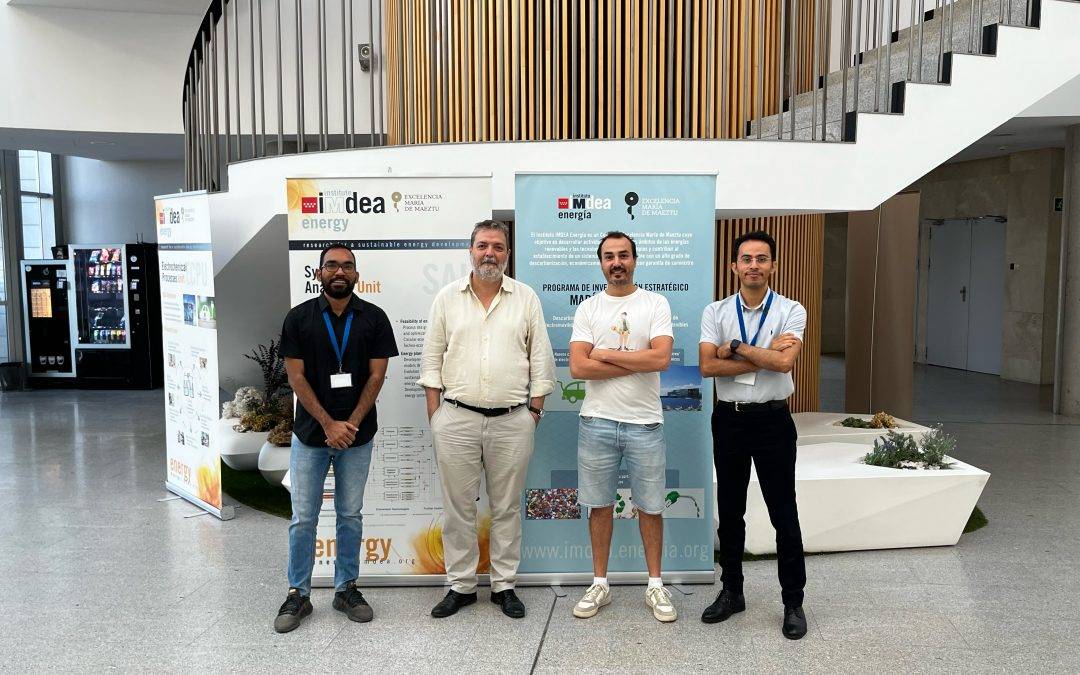
Dec 12, 2023
Partner presentation 🤝
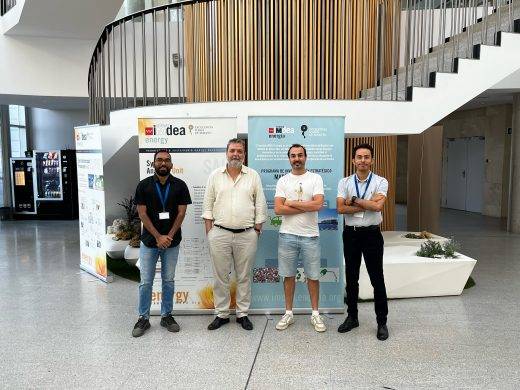
IMDEA Energy NIMPHEA team
IMDEA is a research initiative driven by the Regional Government of Madrid (Spain) and formed by a network of independent centres which operate as public non-profit foundations. IMDEA Energy is part of the IMDEA network since its creation in November 2006. Its mission is the promotion of R&D activities in energy, with emphasis on topics related to sustainable energy technologies, including their analysis from technical, economic, environmental and social perspectives.
The Systems Analysis Unit of IMDEA Energy has a strong background in the technoeconomic, environmental and social assessment of a wide range of energy systems, especially hydrogen-related ones. The research team is composed by a group of experts on the development and use of modelling and simulation tools, life cycle sustainability assessment, and prospective analysis.
Within NIMPHEA, IMDEA Energy leads WP6 on “techno-economic, environmental and risk assessment”. In particular, IMDEA Energy leads NIMPHEA tasks on environmental life-cycle assessment, life-cycle costing, and eco-efficiency benchmarking.
“The IMDEA Energy team is in charge of studying the sustainability of the systems developed in the NIMPHEA project looking at releasing environmentally friendly and socially responsible systems.”
“The IMDEA Energy team has a wide experience in sustainability assessment of hydrogen systems applied to different sectors but its participation in NIMPHEA will broaden its expertise to the aviation one.”
Javier Dufour, Research Professor
Meet the team:

Javier Dufour: PhD, Research Professor, Systems Analysis Unit

Vafa Feyzi: PhD, Postdoctoral researcher, Systems Analysis Unit

Diego Iribarren: PhD, Senior researcher, Systems Analysis Unit
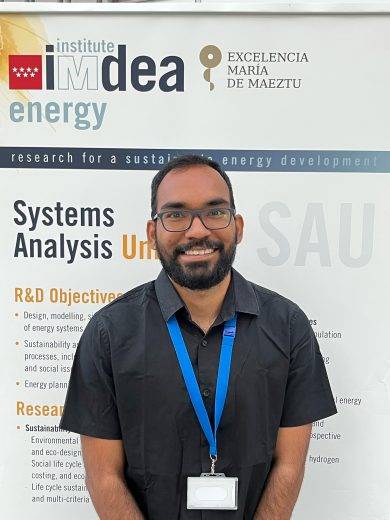
Sumanth Maddula: MSc, Predoctoral researcher, Systems Analysis Unit
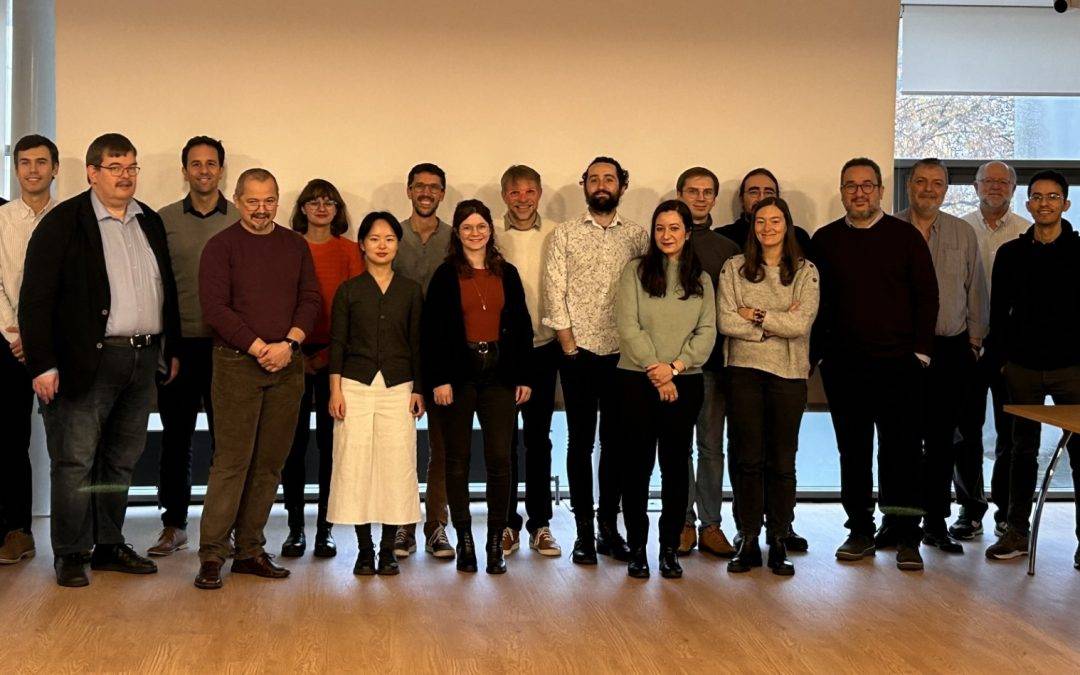
Nov 24, 2023
On the 16th and 17th of November 2023, the NIMPHEA project held its second General Assembly meeting at the Centre National de la Recherche Scientifique (CNRS) in Strasbourg (France).

NIMPHEA General Assembly members
Partners presented their main technical achievements and principal results, offering vision about the project’s progression on the development of a new generation of HT-MEA.
It was also an opportunity for partners to discuss key technical issues and for the coordinator to update the consortium on ongoing administrative and communication activities.
At the end of the first day of meeting, participants were able to do a Lab tour organised by the CNRS.
The discussions showed a high level of commitment from all partners and a progression in line with the workplan and schedule.
Thank you to the whole NIMPHEA team which made this meeting a success with insightful technical discussions.
And special thanks to the CNRS for welcoming the consortium in Strasbourg !
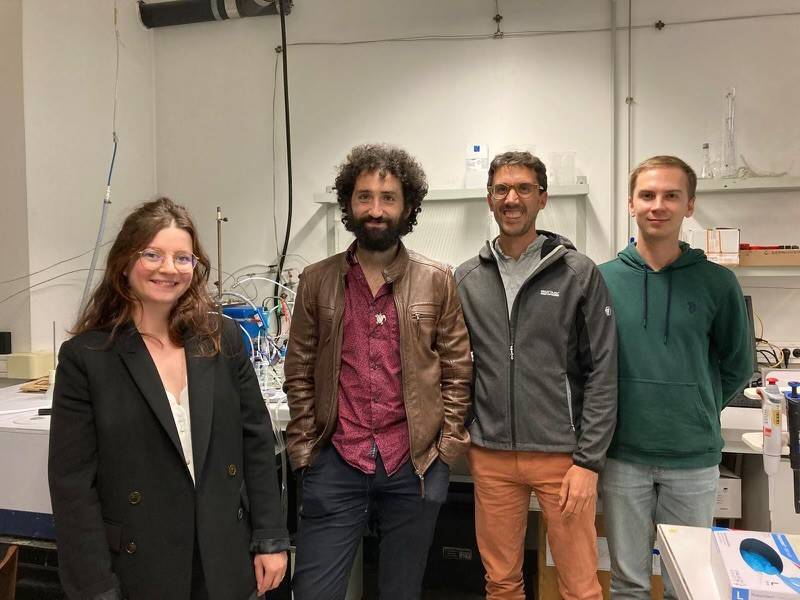
Oct 9, 2023
 On October 5th and 6th 2023, the NIMPHEA project coordinator, Yan Duranteau (R&T Project lead), along with Marion Scohy (Stack design Engineer) visited the CNRS premises for a two-day workshop.
On October 5th and 6th 2023, the NIMPHEA project coordinator, Yan Duranteau (R&T Project lead), along with Marion Scohy (Stack design Engineer) visited the CNRS premises for a two-day workshop.
They were welcomed there by Tristan Asset (CNRS Researcher – Project manager for NIMPHEA) and Kirill Dosaev (Postdoctoral researcher).
It was an opportunity for Safran Power Units to present their Hydrogen Roadmap to the CNRS team.
The two partners also discussed very technical issues related to the NIMPHEA project such as GDL (Gas Diffusion Layer), catalyst layer structure and PVD (Plasma Vapor Deposition) aspects, as well as upcoming dissemination activities for the project.
NIMPHEA partners will also all get the opportunity to discover the CNRS premises when they all meet there for NIMPHEA second General Assembly meeting later this year.

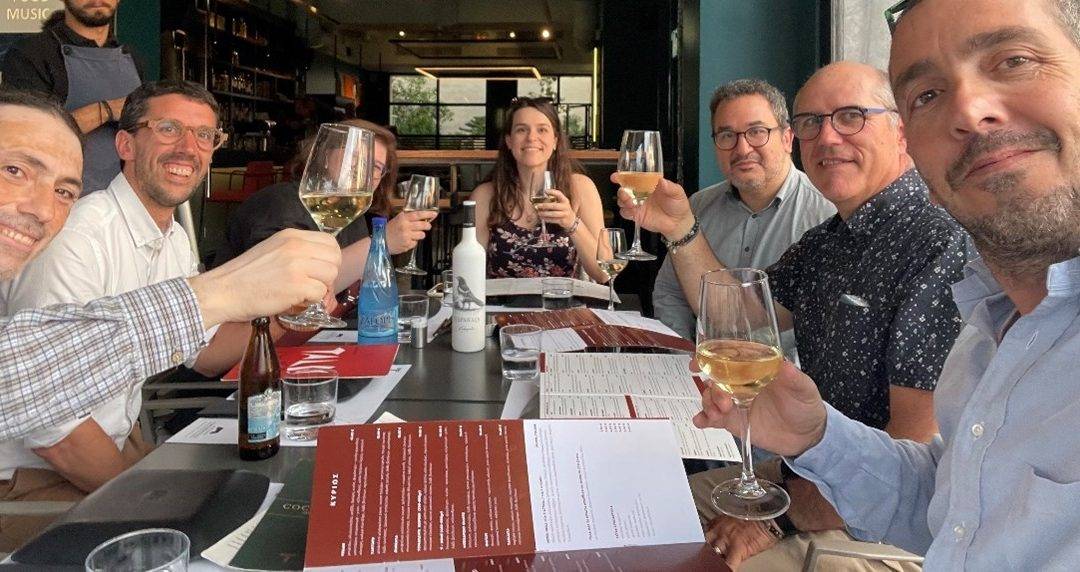
Jun 12, 2023
In late May, the team from Safran Power Units was welcomed at the Advent facilities in Patras (Greece) for a two-day workshop.
It was an opportunity for Advent to present their organisation in detail and for Safran PU, as coordinator of NIMPHEA, to meet the project team at Advent.
The two partners also discussed technical issues of the project, including testing protocols and industrialisation. Safran PU also took this opportunity to present the context of aeronautical regulation in which they evolve.


























 On October 5th and 6th 2023, the NIMPHEA project coordinator, Yan Duranteau (R&T Project lead), along with Marion Scohy (Stack design Engineer) visited the CNRS premises for a two-day workshop.
On October 5th and 6th 2023, the NIMPHEA project coordinator, Yan Duranteau (R&T Project lead), along with Marion Scohy (Stack design Engineer) visited the CNRS premises for a two-day workshop.
